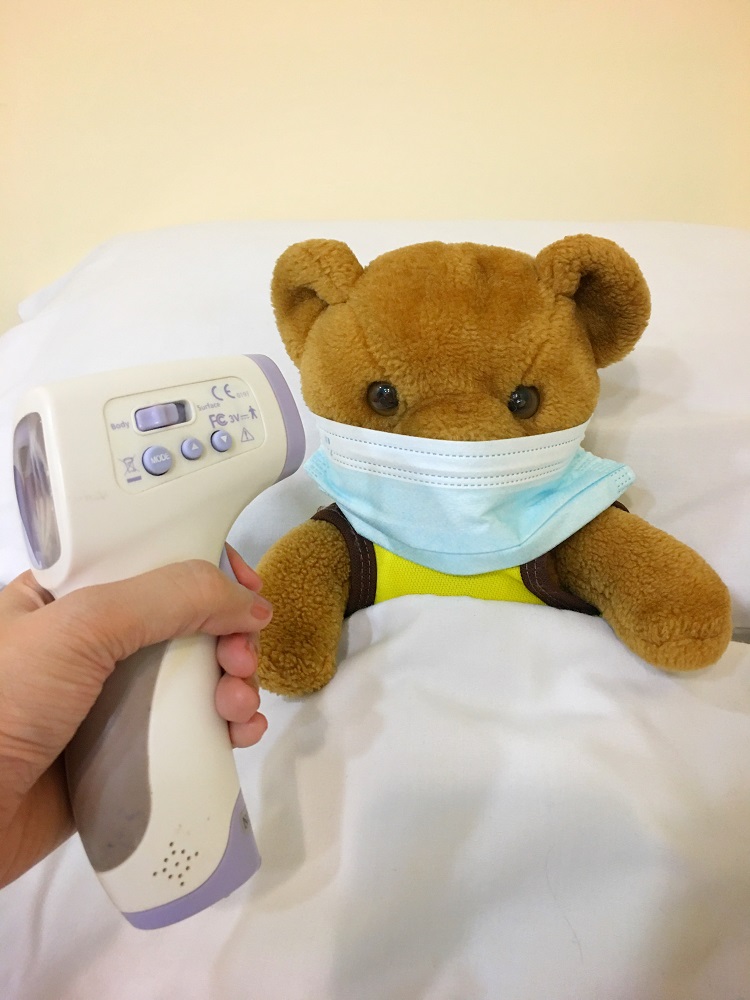This post is to share practical tips for helping other parents when their kids get sick.
Disclaimer: This post is meant to be used for informational or educational purposes only and not as a substitute for professional medical advice. Please consult with a healthcare professional if you need advice for you or your family’s medical condition/s.
As a dad of two kids, mishaps and sicknesses are part of the package with them. Especially since kids tend to mingle in social spaces and don’t really think twice about putting their fingers in any crevice imaginable. More often than not this can cause sickness, from the common cold, to cuts and bruises, to food poisoning, among others.
Anyway, I just thought of putting this list together to help other parents, especially first-timers to prepare and also to manage when their kids go through sicknesses.
Tip # 1: Always have OTC medicines and supplies on hand
I have a personal list of medicines and supplies we need to have at home and here is an example:
- Anti-asthma medicine (nebules)
- Cough medicine
- Cold medicine
- Anti-fever/painkiller medicine
- Bandages
- Antihistamine
- Cooling patches for fever
- Mosquito repellent stickers/lotion
- Masks
- Baby wipes
I replace as needed when one gets consumed — especially for medicines since children take them in drops or syrup form. Specific items I also bring extra during trips (like bandages, wipes, repellent lotion/sticks, and masks).
TIP # 2: Use a thermometer gun and shoot it into the ear when temp taking
This tip is especially useful if you have a thermometer gun. Basically, you are using it similarly to the ear thermometer. I’ve found that to be very accurate and also less time-consuming as armpit thermometers are more difficult to use with children unless they’re asleep.
TIP # 3: Create a line of communication with your pediatrician
As soon as I’m able, I save our pediatrician’s number in a messenger app. This is useful if you have a good working relationship with your doctor.
If your doctor hasn’t given any number for you to contact, I typically use one of the tele-consult apps (ex. KonsultaMD, NowServing, Doctor Anywhere, etc) and have another pediatrician from there as an alternate or second opinion.
Nowadays, tele-consult apps are a good way to get medical advice without needing to go to the hospital. You will also be able to get prescriptions for antibiotics and similarly restricted medicine, as well as requests for laboratory procedures, if needed.
TIP # 4: Ask for a higher dose formulation for medicine
When your pediatrician prescribes medicine for your children, ask if you can get a higher formulation. For example, instead of a 10mL oral drops dosage to take normally, is it possible to make it smaller, but more concentrated, like a 5mL syrup?
Personally, I find it hard to make my kids take medicine because they generally don’t like the taste. The less I need to give, the better I will be able to make them take it.
Also, ask if there are other flavors if possible — sometimes vanilla will not be acceptable for your kids, but maybe strawberry or cherry can be.
TIP # 5: Sometimes a fever is good to leave alone
Probably this will be a controversial take from “normal convention”, but fevers are a good way for the body to fight infection. Our bodies naturally increase their temperature to help fight the infection and low-grade fevers (less than 38.9C) may not need anti-fever medicine to treat.
If the child is not comfortable or the fever hasn’t broken into a sweat for a few hours then we can consider giving them anti-fever medicine.
Again, this is just a tip, and if you are not comfortable with this, then you should contact your pediatrician as soon as possible.
Tip # 6: An Emergency Room trip will take a lot of time so plan accordingly
This is a personal anecdote: our daughter had been sick for a few days and we decided to take her to the emergency room in her pediatrician’s hospital. While she was quickly assessed in triage, we waited for 3 hours before the shift doctor was able to check her and another hour before the medical technician was able to extract her blood for testing.
After extraction, we waited 3 hours more for our daughter’s tests to be completed. It was a good thing that we were able to get a bed in the ER while waiting as she was able to sleep most of the time. We were able to get a diagnosis and a discharge summary eventually but we were really tired when we got home.
This is not to discourage, but to inform and to help you set expectations when taking your child to the ER.
TIP # 7: Keep calm and trust your Gut
Experience is a good teacher, but sometimes it also pays to listen to intuition. When we see our little ones sick and hurting, it can make us anxious and even paranoid. But again, it’s good to weigh every option rationally and do appropriate action depending on your gut.
Always set your course of action from a position of reason and careful consideration. If you need more information, message or set an appointment with your pediatrician. If you need to go to the ER, think about what you need to do beforehand.
